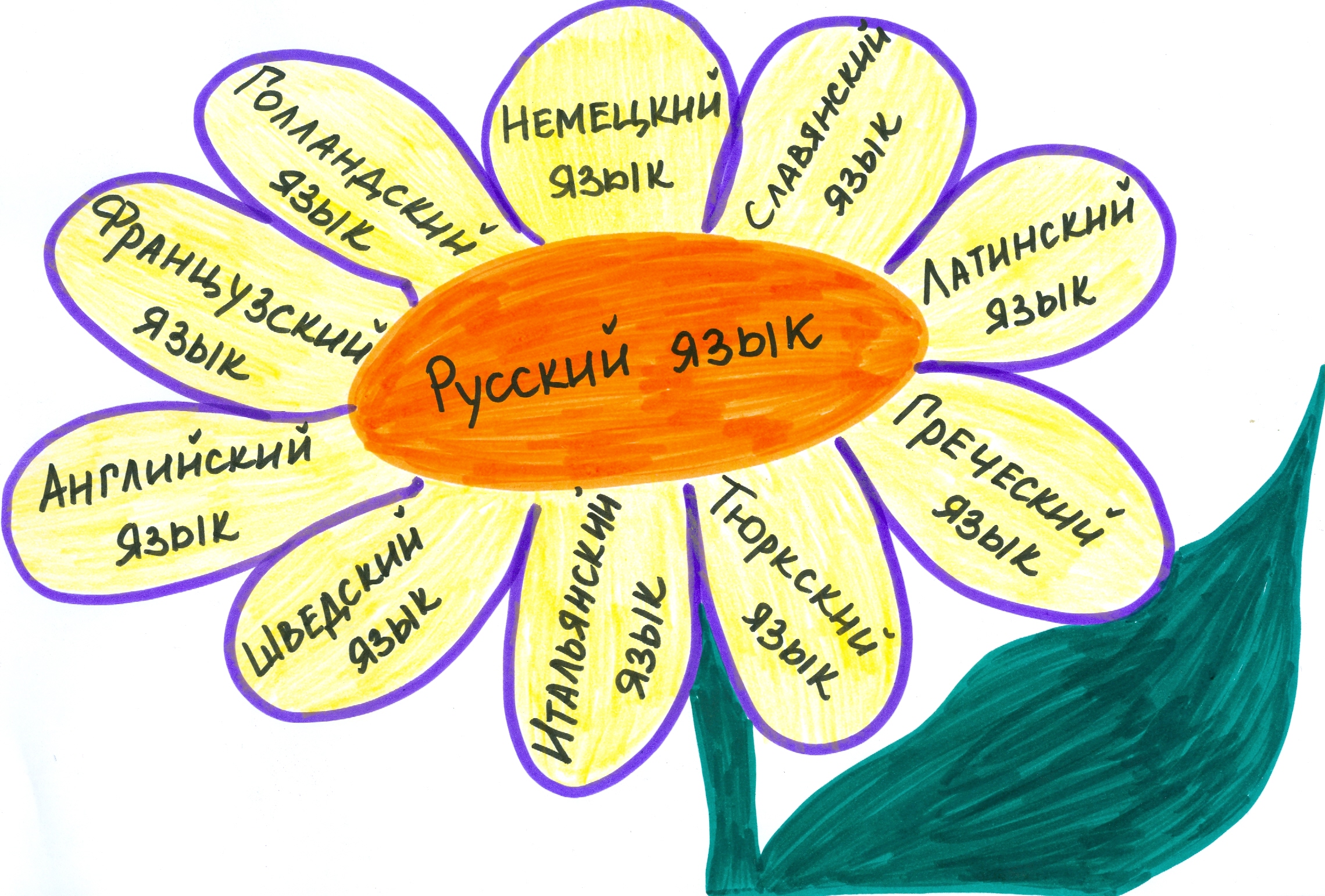How to learn a foreign language. How to easily learn a foreign language.

Today we will not try to draw your attention to the main content of this article with an eloquent introduction, because each of us has our own list of reasons. The importance is obvious. So let's not waste time.
Is it possible to learn a language on your own? Russian psychologist D. Spivak in his book “How to Become a Polyglot” provides some tips designed to improve language skills when learning a foreign language. And one of the recommendations is that it is better to learn the language using tutorials. This way, everyone will be able to control the intensity of classes, give themselves the necessary amount of information and regularly return to various topics to consolidate. Adjusted, of course, for the fact that the process itself, by definition, cannot be completely isolated.
The starting point is the correct setting. First of all, think about why you want to teach foreign language– for studying, moving to another country, resurrecting memories and improving school knowledge, as a hobby. An honest answer to this question will allow you to create a training program tailored to your needs, focus on the right aspects, and will contribute.
Another secret to successful language acquisition is daily training, which allows you to develop skills like. In addition, consistency and constancy have a beneficial effect on learning, without which there is nowhere in learning a foreign language. It’s like exercising – the results come with regularity. Therefore, strict adherence to the lesson plan by day and time is so important.
What will contribute to the result?
Dive
You've probably heard the statement many times that any language is much easier to learn when completely immersed in a natural environment. But what if you can’t go to study English in the UK or Spanish in Spain? The answer is obvious - try to create a suitable environment at home. It is, of course, impossible to achieve maximum similarity. But reading books (first adapted), watching films, listening to audio recordings, language practice - all this is available to anyone who has the Internet. Try to surround yourself with the language you're learning as much as possible, rather than using study materials alone.
Gamification of the process
Patience and work at any age
Among the people around you, there will always be skeptics who will raise their eyebrows in amazement when they learn that in your early 30s, you intend to learn French, Chinese, Dutch, Finnish from scratch (substitute or add what you need). “How?”, “Why?”, “This should have been done earlier, now it’s too late.” Do not allow such formulations to sow a grain of uncertainty in your mind and, especially, to become disappointed in your own abilities. Patience and a little effort. Studying for the sake of results, by definition, is never easy, so persistently pursue your goal. Yes, at a younger age, due to linguistic flexibility and focus on the intuitive assimilation of linguistic norms, it is relatively easier to learn a foreign language. But research confirms that you can start learning a language and achieve success in this matter at any age.
Lately people have been asking how best to learn foreign languages. I am not an expert in this matter, but I can give some advice, guided by own experience and common sense.
So, 10 tips for those who are studying or want to study foreign languages.
1. Don't rely on self-education. Self-education is, of course, good, but very few people are capable of it. You will achieve much best results, if you have a teacher, and self-education will be a good addition.
2. Set aside a specific amount of time to study the language.
You need to study the language regularly. Cavalry attacks will not help in this difficult matter. Real results will only come with regular exercise.

3. Learn the language the way you do best.
Some people find it easier to perceive information by hearing (auditory learners), while others perceive what they see better (visual learners).
Find out which channel of perception works best for you and learn the language based on that.
There are a lot of tests on the Internet. For those who regularly write to LiveJournal, I can advise quick way. This test quickly analyzes your records and gives the result.
23.01.10 05:35 . was diagnosed by a psychologist:
A measured gait and a clearly defined voice. The build is average and proportional. The distance for comfortable communication is about a meter, so you can hear your interlocutor better :) |  | VISUAL | |||||||
| AUDIAL | |||||||||
| KINESTHETIC | |||||||||
| DIGITAL | |||||||||
| GUSTATOR | |||||||||
| OLFACTOR | |||||||||
Updated diagnosis: av |
|||||||||
The test was invented by outside_flo, 2006, 2007. |
|||||||||
4.Combine business with pleasure.
At school, English was my favorite lesson, because our teacher understood that it was not necessary to insert gaps in Soviet English textbooks for the entire lesson. You can have an interesting conversation in English, while using the necessary words and grammatical structures.
So:
- Watch movies (especially if you are a visual or visual-auditory learner)
- Read books (especially if you are a visual person)
- Listen to audio books (especially if you are an auditory learner)
- Sing songs
- Follow the news
- Read books on your specialty
With the Internet, the possibilities are now simply endless.

5. Use flashcards to expand your vocabulary.
At the university I used up more than one ream of paper for cards. On the one hand, the English word, on the other - all the translation options, phrases, examples, etc. It is very important to write not just one meaning, but all of them and with variants of use. This way you will develop intuition much faster. You will feel the language rather than translating sentences word by word.
At one time I wrote these cards by hand. Now it’s 100 times easier to make a template in Word or Excel and insert words from multitran.ru or lingvo.ru
Work with the cards a couple of times a day. The most efficient and fastest system.

6. Travel.
The language is truly unleashed only abroad, in a linguistic environment. So if possible, be sure to plunge into the unknown :)
I really overcame the language barrier only in America. Before that, I understood everything, but couldn’t say it :) More precisely, I could, but with great effort.
![]()
7. Watch the movie with subtitles.
Take your favorite movie, look for the script for it on the Internet (for example, I found all the transcripts of “Friends” in just 5 seconds), print it out, take it apart and watch it until you’re blue in the face. As a result, you will have a lot of fun, remember a lot of useful phrases and expressions, and most importantly, the cultural context. 
8. Learn the language from English, not Soviet textbooks.
Russian textbooks have a lot of inaccuracies, errors, omissions and other garbage that is not typical for the language. Why do you need this baggage of thought cliches?

9. Download and listen to audiobooks.
Wonderful thing. The Internet is simply filled with audiobooks in all languages of the world. And free of charge. Download and listen, listen and download.
In Moscow I listened at least 1.5 hours a day. Classics and trash, lectures on marketing, podcasts, etc. You can find transcripts for many books, so if you have too much energy, you can first sort everything out on a piece of paper, and then fix it on the way to work, in traffic jams, etc.

10. And most importantly - set yourself goals and go towards them.
200 new words, 4 new films, 2 audiobooks, 10 lessons - per month, per year, per week. Decide for yourself. The main thing is to go towards the goal.
Now everything is available (I heard that in Russia many receive lessons via Skype), almost everything is free - so no excuse whatsoever :)

Share your experience, friends and girlfriends. What advice do you have for those who want to learn a foreign language? What helps you? What sites do you use?
Everyone knows very well that foreign languages are in fashion today. Nowadays, all formalities when traveling abroad have been greatly simplified, which allows thousands of people to freely travel around the world. Many of them go abroad in search of better life, some have already found work there, some are still looking. In this situation, knowledge of the language is mandatory and necessary.
And now textbooks and dictionaries, which were gathering dust on store shelves, are instantly sold out, language learning courses are flourishing, and qualified, experienced teachers demand exorbitant amounts of money for their lessons.
Unfortunately, not everyone, due to their employment or financial instability, can afford to attend language courses or use the services of a tutor.
There is nothing else left to do but study on your own. But learning any foreign language is quite specific, so from the start of studying, a lot of problems often arise related to ignorance of the self-learning methodology itself.
What's the schedule? How to structure lessons? How to conquer the correct pronunciation? How, how much and what books and magazines to read? How to remember a large amount of information, many new words and grammar rules?
You will get the answer to all these and many other questions by reading this article to the end! She collected everything in herself useful recommendations, instructions and advice, by listening to which learning will become much easier, more interesting, and most importantly - more effective.
Internal success factors
Any sane person without exception, if desired, can learn any language at any age. There are no people who are completely unable to learn a foreign language, however, language abilities are subject to quite strong variations. For some, learning a language is much faster and easier than for others. However, everyone who believes that they are capable of learning a language, or simply do not want to spend time on serious studies, are lazy - naturally, nothing can help them here, or I don’t have the slightest idea how to correctly and rationally organize all stages of their learning and make this system. The latter will get a lot of useful and interesting information from this article.
As with anything else, in learning any language the result directly depends on the level of interest, effort and perseverance. Be that as it may, knowing a language poorly is still better than not knowing it at all.
When learning a language, it is important to have a good memory for words, be able to imitate a variety of sounds and think logically.
Organization of self-study: basic principles
- Unconditional success and obtaining the desired result will be achieved only by a method that the student will not perceive as a heavy burden, burden or necessity. External pressure usually causes only resistance;
- Choose a specific time of day for your lessons. Try to study every day, with a maximum of one day off per week. Each class, even if not very long, is much more useful and better than a multi-hour “assault” once or twice a week;
- The ideal duration of classes should be 1-1.5 hours a day with mandatory 5-minute breaks or without them if the lesson lasts no more than an hour. After 7-10 hours after the lesson, it will be very useful to conduct a 10-minute review of the material covered;
- Be sure to arrange comfortable and cozy conditions for yourself: comfortable workplace, excellent lighting, maximum silence;
- During training, use all your senses: hearing, vision, hands, speech organs. It is necessary to fully utilize all information entry paths, combining and combining their work;
- Try to constantly apply the acquired knowledge, persistently practice the language as soon as the opportunity presents itself. Take advantage of any free time for this - in transport, when you are waiting for something or someone;
- Create a plan in advance according to which you will constantly repeat the material you have studied. Only deliberately organized repetition can ensure lasting memorization;
- Do not try to speed up your optimal pace of language learning, as the dynamics may negatively affect the results;
- Gradually introduce various game situations into the learning process;
- Do not be ashamed to praise yourself if you have achieved positive results - you should be confident in your abilities and capabilities;
- Study the history, geography, economics, culture, art and literature of the state whose language you are studying.
First stage
If you have clearly decided to study a particular language, you will need a textbook, a phrasebook, a couple of dictionaries and light fiction books.
Work through the textbook carefully and point by point, completing all the exercises correctly. Get busy written translation text, leaving free place To correct errors, separately analyze all your errors and their causes.
Many teachers advise studying simultaneously using several textbooks from different authors. This way you can compare a variety of material presented, and therefore do not tie yourself to a single option. Nevertheless, such a path of learning is very labor-intensive and requires a certain dispersion of attention, which not everyone can do.

Start reading adapted literature, simple plays and short stories as soon as possible. Start with something generally accessible, read the text a couple of times, write down any new unfamiliar words and phrases for further study.
Try to consult with native speakers or teachers as often as possible. Ask them to check you and correct your mistakes, if any, and explain their origin.
Pronunciation
Impeccable and correct pronunciation is the basis for learning any language. Defects and imperfections in pronunciation make it much more difficult for anyone to understand and perceive the speech you are delivering. Learning correct pronunciation is one of the most difficult tasks. During your first contact with a foreigner, he will judge your knowledge solely by pronunciation.
You need to focus on the following points:
- It is possible to avoid many errors in pronunciation by following the precise and clear display of the position of the articulatory apparatus when you reproduce the sound given in the textbook in the phonetics section. Practice pronunciation as intensively as possible in the first months of learning the language, until you begin to pronounce all sounds automatically, without particularly straining;
- It is possible to learn all the rules of pronunciation quickly and efficiently only when you compare them with the rules inherent in your native language. You need to compare the sound you are studying with the closest most similar sound in your language, fix the position of the speech organs that makes such a sound different;
- You should practice for as long as possible in pronouncing the most difficult sounds. Also work through those sounds whose incorrect pronunciation distorts the meaning of the entire word;
- It is imperative to practice your pronunciation in front of a mirror - this will allow you to perfectly control the facial expressions that are characteristic of certain sounds. It is extremely useful to watch foreign, undubbed films; this will allow you to “read” sounds solely by facial expressions;
- Try to listen to radio programs as much as possible and repeat phrases after the announcer. Training directly on the correct perception of sounds will undoubtedly lead to positive results;
- Should Special attention pay attention to correct intonation and stress. Acquiring skills in the correct one is quite difficult, since the manner of pronunciation of words in different languages is very different. The assimilation of the correct melody of the language will be facilitated by repeated listening to radio programs recorded, for example, on a voice recorder;
- Try to learn poems by heart and read them with expression, while trying to convey all the shades of sound with your voice.
Grammar
Learning a language without mastering grammar is only possible for a small child or a person who, for some reason, found himself in a foreign language environment and was completely cut off from his usual one.
The rules of grammar should not only be known, but also understood. A meaningful principle certainly creates a habit, and the leisurely application of these rules subsequently becomes automatic. All the grammatical patterns that you have mastered act on the principle of a template; in the future, they allow you to “cut” new forms based on it. The entire study of grammar comes down to the production of these patterns, which is why your task is to master as many stable fundamental patterns as possible.
Here are the main basic rules and tips for learning grammar.
- Remember that a solid knowledge of the basics of grammar is much more important than a superficial, trivial acquaintance with all the minor elements;
- Do not look for any clear logic in grammar, since any language is rich in inconsistent phenomena that are determined by the process of its development. That is why, along with studying grammatical rules, at the same time try to study all the exceptions to them;
- Grammar rules need to be memorized by memorizing entire sentences where they are used. This approach will make your learning easier; it’s easier than memorizing the rules formulated in a textbook;
- When studying grammar, try to compare the rules of grammar in a foreign language with identical rules in your native language. This will allow you to find similar phenomena and will contribute to the creation of associative connections;
- Initially, learn to conjugate verbs and inflect nouns with pronouns, try to determine the structure of a sentence, as well as the order of words in it;
- It is imperative to draw up tables of the rules that you are studying, this will give you the opportunity to visually assimilate the material;
- Try to formulate questions on your own that include the grammar rules you are studying, and try to answer them using examples.
Your goal should be to create a standard model-sentence, into which you will gradually include several rules of the same type in order to compare various rules with each other, comparing them using the same model.
Language Acquisition
There are four main types of speech that make up language activity: listening, reading, writing and speaking. To know a language well, you need to be fluent in these types of speech.
To understand speech by ear, you need:
- constantly listen to tape recordings and radio broadcasts;
- communicate as often as possible with people who ideally speak the language you are studying;
- read aloud with correct intonation;
- constantly repeat samples of heard speech;
- use various oral exercises;
- gain practical phonetic skills, improve pronunciation.
There are two basic types of reading - extensive and intensive.
During extensive reading, you do not pay typical attention to detail; your reading is focused solely on the essence of the story. We get a more general and less accurate perception. On the other side of the coin, if you read without understanding what is happening, it will not bring any results or benefit.
Intensive Reading- unhurried and thorough, includes an explanation of the smallest and most detailed details, completely all grammatical, lexical and stylistic specifics of the text. In this case, naturally, all interest in the text as such and its meaning are often lost.
A detailed analysis of difficult texts must be combined with quick reading of easy ones. The fatigue that occurs when reading fluently is associated with frequent switching of one’s attention, which is more than compensated for by both the interest and pleasure of reading.
Speak a foreign language fluently- a rather severe characteristic of speech activity. To speak, you need to operate with a huge number of words, various model sentences and speech cliches, and use them automatically, without thinking.
You can learn to speak correctly and efficiently with the help of the following exercises.
- It is necessary to remember the maximum number of stamps, various short phrases, as well as stable phrases and expressions. Try to learn and pronounce some proverbs and sayings, parables, anecdotes and short dialogues;
- Speech skills are perfectly developed by modern plays and stories written in a conversational style. They contain the most necessary words and models. Textbooks and manuals often contain slightly artificial texts; they are not always a reliable and thorough source of colloquial speech;
- after a couple of months, it is necessary to include retelling of texts in the learning process, gradually increasing their complexity. To automate speech skills, during repeated retellings you need to increase the speed of speech;
- After reading the text, ask yourself various questions about the text, answering them yourself;
- Learning to speak correctly and beautifully is possible only in the process of speaking. Therefore, you need to practice speaking at the slightest opportunity;
- talk to yourself, practice daily, tell yourself what you see and hear around, what you want to do, etc. You must accustom yourself to obligatory monologues.
Despite the fact that writing is far from the primary attribute of language learning, it cannot be ignored. If you cannot express your thoughts in writing, you cannot be called a person who knows the language comprehensively.
You can develop written language in the following ways.
- You are required to complete all written exercises in the textbook, in particular those related to translation from your language into the target language;
- write questions about what you read;
- give yourself self-dictations to test your memorization of newly learned vocabulary;
- express the elaborated text freely in writing;
- Write essays on topics that interest you most.
Translation
While learning a language, be sure to practice translating text from a foreign language into your native language and vice versa. Translation is not only about combining the meaning of each individual word into one phrase, it is primarily about conveying thoughts. In fact, this is the creation of a new sentence, taking into account all the features of the language into which the text is translated. It will greatly facilitate translation if you memorize figures of speech that differ from those of your language, but carry the same semantic load. Always, remember, always avoid literal translation of the text.
So, to summarize, it must be said that all types of speech activity, without exception, are inextricably linked with one another. Therefore, never pay more attention to one at the expense of the others. Use, to the extent possible, all the techniques and means described above. And most importantly, the only shortcut to full mastery of a language is persistent, painstaking, concentrated, systematic and conscious work.
Spring is a time of change. Some were planning to visit an unfamiliar country during their vacation, some were planning to change jobs, and some were planning to change their place of residence. And to implement your plans, you need to learn a foreign language. What to do? You can find urgent courses and sign up for them. But, one way or another, you will need considerable independent effort in learning a foreign language if you want to succeed in it. I think a few tips on how best to organize independent work on learning a foreign language will help you. Let’s say right away that we are talking about independent study of European languages.
Not a goal, but a means
When starting to independently study a foreign language, first clearly answer the question – why do you need it? Firstly, the basic vocabulary that you will choose to memorize, and secondly, the amount of grammatical material that you will need when studying, depends on how exactly you intend to use your knowledge of the language.For example, if the intention to learn a language arises from the need to go to the historical homeland of a future or already established foreign husband, then the goal will be to communicate with relatives, mastering life skills in a country where all the people around will speak a different language. Consequently, it is logical to place the entire emphasis in mastering new words on everyday, family and everyday vocabulary, so that the vocabulary satisfies the needs of everyday life. In this life, you need to talk about the weather and prices with neighbors, about the health of children with relatives, you need to do your own shopping in a store, know how to use public transport, know how to pay for utilities, get a transfer, contact emergency services...
In order to learn to speak a foreign language at this level, as a rule, about 40 hours of classes are enough for a student if the training starts from scratch. During this time, under the guidance of a teacher, it is quite possible to understand how to construct simple narrative and interrogative sentences, you can learn to freely use the most basic tenses of verbs - present, past, future and learn the necessary initial stage 3-4 thousand words.
If learning a foreign language is to seek a more advantageous professional position, a promotion, or work in a foreign company, then the requirements, of course, will be much more serious. The minimum will be about 20 thousand words, most of which are related to the profession and position, and it will take at least 100 hours to master the language. And the scope of grammatical rules will include complex sentences, and complex verb forms.
And the task is completely simplified if you are just an inquisitive tourist, and you want, while traveling, to feel confident, communicating with the people around you in their language. In this case, you can independently determine how deep knowledge of a foreign language you need.
Is it possible to learn a foreign language on your own?
 If you have character and discipline, then learning a foreign language on your own is quite possible. Although at the initial stage, MirSovetov still recommends working with a teacher individually or taking courses. This will make it easier to master pronunciation, especially in languages where it is difficult. Once you feel that you already have a base of pronunciation and grammar, you can set off on your own. Fortunately, in stores you can find audio courses in almost any language.
If you have character and discipline, then learning a foreign language on your own is quite possible. Although at the initial stage, MirSovetov still recommends working with a teacher individually or taking courses. This will make it easier to master pronunciation, especially in languages where it is difficult. Once you feel that you already have a base of pronunciation and grammar, you can set off on your own. Fortunately, in stores you can find audio courses in almost any language. Any person can learn a foreign language, especially if he graduated from a regular secondary school, which means he has already mastered some basics of English, German or French at school. That is, there is an idea of what a foreign language is in general. This is the main thing. Everything else is a personal mindset to win.
What does personal attitude mean?
First, and this is very important, try to love the language you are learning, love the process of learning it, then consider that half the work is already done. If you perceive language learning as a hobby, and classes as pleasure, your studies will be much more effective.
Secondly, you need to understand that you need to learn a language in order to use it as an important tool for a specific goal - significantly improving the quality of your life.
And thirdly, personal attitude means interest in the language. Try to first understand the logic of grammatical rules, the formation of words and sentences, and then engage in cramming.
Is cramming necessary?
Rather yes than no. Memorizing rules, words, and other language material is absolutely necessary if you want to have even a small but strong knowledge.
Where to start studying?
 If you start learning a language from scratch, then it is better to conduct such a “free course” of getting used to it. What does it mean? If possible, buy in that language and listen to them in free time. From time to time you can watch films in this language. Your memory, like a sponge, will absorb unfamiliar speech, and, watching the action in the film, you will intuitively understand even a little individual expressions and simple phrases.
If you start learning a language from scratch, then it is better to conduct such a “free course” of getting used to it. What does it mean? If possible, buy in that language and listen to them in free time. From time to time you can watch films in this language. Your memory, like a sponge, will absorb unfamiliar speech, and, watching the action in the film, you will intuitively understand even a little individual expressions and simple phrases. Buy a phrase book and little by little choose and read the simplest phrases there, for example, forms of greeting, farewell, introduction, simple questions and answers. All modern phrase books, which can be bought in any large bookstore in any city in Russia, include a fairly wide list of such phrases for all occasions. Just read them, it's quite an interesting activity. At the same time, you seem to be preparing your visual memory to assimilate a new font, new phrases and structures. If you are still trying to mentally pronounce what you are reading, you are preparing your speech apparatus for the fact that one day you will speak this language.
When preparing to start learning a language on your own, you need to take care of a textbook. How to choose a textbook?!
It is interesting that very different people studying the same educational literature given language, there may be the most opposite opinions. Why does this happen? Because different people have different perceptions. Some people understand the rules better if they are explained in detail in the textbook, while others, on the contrary, quickly perceive the material in the form of diagrams and tables, accompanied by brief explanations. Even the layout of the material in the textbook and the sequence of studying grammatical forms and rules are perceived differently! Don't trust anyone else's review, trust your intuition. Therefore, MirSovetov can advise the only correct way in choosing a textbook - go to the store and start simply taking a textbook from the shelf, and, flipping through and reading it from the first pages, try to understand what is written in it.
When you “test” several textbooks in this way, it will become clear to you that in some of them it is easier for you to understand the text of the explanation, and in some it is more difficult, and in the third there is generally incomprehensible gobbledygook. Feel free to choose the one that seems clearer to you. This means that it will be easier for you to learn the language. Later, when you begin to study systematically, when you become familiar with the basic concepts of the language, you can, in addition, purchase as many textbooks as you need for more efficient work, you can even study different sections according to different textbooks. Let's say, the verb forms are from one textbook, and the declension of nouns by case is from another, and the texts for reading and training in translation are from a third.
Necessary tools for independent language learning

- The most important thing is the textbook! In the annotation to it, look to whom it is recommended. For your very first textbook, choose those that have recommendations “for independent learners”
- Audio course for the initial stage of language learning. There are now a lot of them in stores for almost all European languages. Be sure to look at the annotation to it, text accompaniment, volume and content of topics. Choose a topic that best suits your goals - everyday general vocabulary, tourism, or your profession. So that you don't end up accidentally buying a set of discs for younger children. preschool age!
- MirSovetov considers keeping a notebook mandatory. Yes, yes, if you want to take things seriously. It is necessary to take notes in a notebook, write down everything that you want to remember, draw signs there and write down the rules, as well as your own comments on what you have learned. Using your own notes, as a rule, it is much easier to repeat what you have covered than using a textbook.
- Dictionary. When you choose a dictionary, use the same approach as when choosing a textbook - first look through, read, check whether you understand what is written in it and whether the dictionary is convenient for learning.
- Your personal notebook-dictionary. It is absolutely necessary at the initial stage of language learning! You will collect new words in this personal dictionary, and it is better to do this on a thematic basis. Let’s say you write down words separately on the topics: “household items”, “food”, “feelings”, etc. Be sure to include topics related to your profession if you are learning a language in order to advance in or get a new job.
Organize your own personal “language environment”
 It was noted a long time ago: repetition is the mother of learning. Ideally, you can afford to study the language for at least an hour every day. But, as a rule, working people with families cannot always find this hour of free time. What to do?
It was noted a long time ago: repetition is the mother of learning. Ideally, you can afford to study the language for at least an hour every day. But, as a rule, working people with families cannot always find this hour of free time. What to do? Surround yourself with “reminders”! An old trick is to stick cards with words in all places in your apartment where your gaze might linger on them. As options: on the mirror in the bathroom (while you brush your teeth, repeat the words written there), near the mirror (while you comb your hair, read the “reminders” for 2-3 minutes), on the wall or on the cabinet above the sink in the kitchen, above the work table, above the computer monitor... You never know how many places there are! By the way, a very effective thing for women is to stick such “reminders” in places where housework is boring. For example, if such cards hang above the kitchen sink, then washing dishes every day will be an excellent opportunity to memorize new words! And also ironing clothes, cleaning shoes, walking with a vacuum cleaner on carpets, curling hair curlers, not to mention working out on a home exercise machine! Even when you are working on a computer, you can easily take 5-minute breaks, diverting your attention from your work to repeating words and rules of the language. MirSovetov emphasizes that the main thing is to correctly place your “visual aids” in the right place. And at the right time, mobilize yourself to pay attention to them. Then you will see that, without straining, you calmly “gain” the required time for repetition.
In the same non-violent way, you can organize yourself to listen to audio lessons and other audio materials. For example, if you are working your magic in the kitchen, preparing a delicious dinner for your family, it is difficult to be distracted by “reminder” cards. But this is the time to listen to an audio CD with a lesson. You peel potatoes, cut onions, make cutlets or cook - and learn the language at the same time!
 It is very useful to organize a simple “immersion in the language” for yourself from time to time. Choose one of the days off, buy movie tickets for the whole family, or send them to the zoo, to visit grandma... in short, provide yourself with temporary solitude. Sit comfortably in front of the TV, placing your dictionaries and notebooks with lesson notes nearby. There is something tasty on the coffee table. Put on a disc with a movie in the foreign language you are studying. And just like that, in a relaxed atmosphere, feeding yourself with positive emotions, immerse yourself in the atmosphere of the events of the film, looking at the dictionary from time to time.
It is very useful to organize a simple “immersion in the language” for yourself from time to time. Choose one of the days off, buy movie tickets for the whole family, or send them to the zoo, to visit grandma... in short, provide yourself with temporary solitude. Sit comfortably in front of the TV, placing your dictionaries and notebooks with lesson notes nearby. There is something tasty on the coffee table. Put on a disc with a movie in the foreign language you are studying. And just like that, in a relaxed atmosphere, feeding yourself with positive emotions, immerse yourself in the atmosphere of the events of the film, looking at the dictionary from time to time. Little tricks can be arranged at work. For example, keep a notebook where you will write down everything you need to remember - words, rules, etc. Repeat what you wrote down at every opportunity: at a boring and unnecessary meeting, during forced idleness due to, say, a lack of clients, etc. In this notebook it is very useful to write down aphorisms and sayings in the language you are learning, accompanied by a Russian translation. In aphorisms and sayings, memorizing words is easier.
Vacation - language learning practice
 Be sure to organize a vacation trip to the country whose language you are studying. Of course, it is better to plan this trip when a basic level of the study has already been completed, and you can understand and express yourself at the simplest level. Be sure to take a dictionary, your study book, and notepad with you. And it’s really great if you take your textbook with you!
Be sure to organize a vacation trip to the country whose language you are studying. Of course, it is better to plan this trip when a basic level of the study has already been completed, and you can understand and express yourself at the simplest level. Be sure to take a dictionary, your study book, and notepad with you. And it’s really great if you take your textbook with you! If you have not yet had experience speaking the language you are learning, then in the very first days of being in a foreign language environment you may encounter a serious psychological problem - the fear of speaking. It is caused by the most banal fear: looking funny in the eyes of others, fear of saying something wrong or being misunderstood.
It takes very little to overcome this fear.
First, you need to understand that in any country, local residents are always interested in a person who studies the language of that country. And even if your incorrect pronunciation makes you smile, MirSovetov would not advise you to rush to conclusions, because this does not mean at all that they want to insult you. When your interlocutor sees that you persistently continue to try, he will begin to help you and suggest words. This has been verified by repeated experience. Of course, you come across clinically inadequate interlocutors everywhere and everywhere, but this is very rare.
And secondly, we must not forget that it is you who need the experience of learning a language in the process of a live conversation, and not your interlocutors. Therefore, talk at any opportunity - in a store, in a bar, in a market, wherever there is a reason for conversation. You will see the result will be impressive. When you realize that you can speak and that people understand you, you will have a powerful new incentive to continue practicing.
How to speak your chosen language today? How to achieve fluency in just a few months? How to pretend to be a native speaker? And finally, how can you learn several languages and become a polyglot in just a couple of years?
Many people think that every person either has the gene for learning languages or does not. But there are techniques and tricks to learn them faster. Let's get started!
1. Learn the right words with the right method
To start learning a new language, you need to learn new words. Lots of new words. Of course, many people think that they are bad at remembering new words and give up before they even start. To learn to speak, you don't need to know all the words. If you think about it, you don't even know the entire vocabulary of your native language.
In learning languages, you can use Pareto's law. The 20% of effort you spend on memorizing new words will provide you with 80% of your language understanding. For example, in English, only 300 words make up 65% of all written material. We use these words very often. The same thing happens in any other language. You can find ready-made “stacks” of cards with the most frequently used words (or words on topics that you will talk about most often) in the application Anki app. This application is located in free access and suitable for everyone operating systems and smartphones.
All good flashcard study methods use a spaced repetition system (SRS). Anki applies this system automatically. Instead of going through the same list of words in the same order every time, you see the words at regular intervals before you have time to forget them.
2. Learn words of common origin: your friends in any language
Believe it or not, you already – right now – have a huge head start in learning the language of your choice. Before you even start learning the language, you already know some of its words. It is impossible to start learning a language from scratch, because you most likely already know a significant number of words of common origin. These are words that have the same spelling and meaning in your native language and the language you are learning.
For example, Romance languages such as French, Spanish, Portuguese and Italian have many words that are similar to English. English “borrowed” these words during the Norman Conquest of England, which lasted several hundred years. “Action”, “nation”, “precipitation”, “solution”, “tradition”, “communication” and thousands of other words are written the same way and have exactly the same meaning in French. And you can adapt to the new pronunciation very quickly. By changing the ending –tion to –ción , you will get the same words in Spanish. In Italian the ending is -zione, and in Portuguese -ção.
Many languages also have words that share a common (Greek/Latin/etc.) root. These roots may have different spellings, but it will be very difficult for you not to recognize them. These words include hélicoptère (French), porto, capitano (Italian), astronomía, and saturno (Spanish). German goes one step further: it has many words that it shares with English.

To find related words in the language you are studying, just try typing “[name of language] related words/loanwords/words of common origin” into a search engine. All this is perfectly suitable for European languages.
But what to do when learning more distant languages? As it turned out, even so far from English languages Like Japanese, there are whole groups of words familiar to us. Many languages simply borrow English words and adjust them to suit themselves, changing pronunciation or emphasis.
3. Use a new language every day
People often say that they don't study languages because they can't travel to countries where those languages are spoken. They don't have money for it, don't have time, etc. You can believe that there is nothing in the air in other countries that will suddenly magically help you speak their language.
Living abroad and immersing yourself in a language are not the same. If, in order to immerse yourself in a language environment, you need to hear and use the language all the time, then why not immerse yourself in it virtually? Thanks to technology, the language environment can come to you—you don't even have to buy a plane ticket.
- To hear the language, try using TuneIn.com– this site gives you access to a huge number of radio channels from any country of your choice. Free app also gives access to a list of radio channels, divided by language.
- To watch programs in the language you need, look at what videos are currently the most popular on Youtube in that country. Go to that country's Amazon or Ebay website and buy your favorite TV series in your preferred language, or find another popular local show. You can save on delivery if you find a series with voice acting in the desired language in your city or on the Internet. Many news channels such as France24, Deutsche Welle and CNNEspañol provide online programs in their respective languages.
- To read the language, try using news sites. Visit the website Alexa and find out which blogs or sites are currently the most popular in the country you need.
And if complete immersion in the language environment is not yet for you, then install a translator plugin on your browser. It will help you tune in to the wave of a new language by translating some parts of sites that you usually read in English and gradually introducing new ones foreign words into your daily reading.
4. Talk and practice on Skype every day
So, you've already started listening, watching videos and even reading in the language of your choice - all from the comfort of your own home. It's time for a big step forward. You can start talking to a native speaker. If you want to speak a language, start speaking it from the very first minute of learning. There are seven days in a week, and "someday" is not one of them.

For your first conversation, you only need to learn a few phrases. If you start using them right away, you will immediately see what is missing and can add to your list. If you study alone, you will never feel ready to have a real conversation. In the first few hours, learn the most commonly used phrases, like “Hello,” “Thank you,” “Could you say that again?” or “I don’t understand.”
But where can you find a native speaker if you are not in the country where they speak the language you are learning? Today this is not a problem at all! Thousands of native speakers are ready and waiting to talk to you right now. Exist social media, where you can get private lessons for a small amount. For example on italki.com.
If you still think you're not ready for a one-on-one conversation, think again. Lessons via Skype will allow you to gradually immerse yourself in the language environment. During a conversation, you can keep the list in front of your eyes keywords(for example, in Word), which you can refer to until you know them by heart. You can also use Google Translate or any other dictionary during a conversation to immediately learn new words that you may need. Can this be called “cheating”? No. Your goal is to learn to act functionally, rather than follow traditional methods.
will help you find speaking clubs in your city, and Couchsurfing, meetup.com, And Internations will tell you where the next meetings of language learning enthusiasts are taking place. Such meetings provide an excellent opportunity to meet both other people who are studying languages that interest you, as well as native speakers. And that is not all. There are other completely free supporting resources:This may seem like a long process to you. Try learning words this way just a few times and you'll immediately realize how effective it is. Plus, you only have to use this hook a few times. After this, the word itself will become part of your vocabulary.
Part 1. To be continued...
